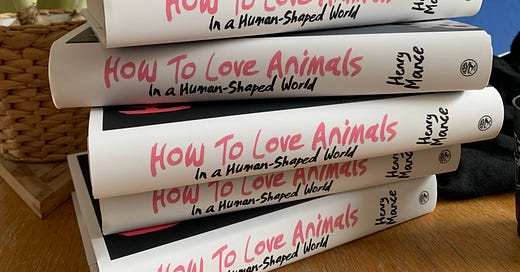“Even writing a shit book is really hard,” the Times columnist Sathnam Sanghera once said. This has crossed my mind a lot while I’ve been writing my first book (out on April 29!). But – if you’re thinking of writing a non-fiction book – the good news is that some things might be easier than you expect. For example:
Rival books: I was initially paranoid about the number of books covering similar topics. But ultimately a book is your take on a subject, so it’s inevitably original. The best stories are worth telling again in different ways. I’ve only recently noticed how many seemingly ground-breaking books cover topics that have already been written about. They’re still great.
Timeliness: Journalists hate their work becoming outdated before it’s published. I gnaw my fingernails in the week or so between finishing an FT feature and it being published; I had to file the first draft of my book *a year* before the publication date. But various people reassured me that a book is a snapshot. The fact that events move on won’t determine whether the book is good or bad. If you read the New Yorker months late, the best stories are still readable. In a way, it’s interesting to see which bits have aged well and which haven’t.
Length: If you think you don’t have enough material for a whole book, wait till you start interviewing people. If you think you have too much, remember that most people will skim-read it anyway and forget it most of it immediately – so you might as well cut it.
Help: So many people – especially research scientists – are amazingly generous with their time.
That said, some things were harder than I expected:
Voice: I’ve been a journalist for more than a decade, so I didn’t think that the writing itself would be that tricky. But I quickly realised that all my FT articles were shaped by them appearing in the FT. Writing a book was really a blank page – I could write in almost any style, at any length. So I had to find a new-ish voice.
Consistency: When you’re writing a 700-word column, or a 3,000-word feature, it’s pretty easy to hold the thread. When I was writing the book, I had no idea what I said on page 67 and whether I had repeated/ contradicted/ disproved it on page 234.
Twitter: I couldn’t work out whether to stop looking at Twitter or not. On the one hand, the whole joy of a book is to step out of the everyday melee of news, and write something fresh. On the other hand, without Twitter, I would have missed numerous cool angles. In hindsight, I should have checked Twitter less. (Might put this on my gravestone.)
Humour: I find a lot of nature writing overly earnest, so I envisaged my book, which covers our relationship with animals, being funny. Sadly, it turns out that it’s quite hard to make jokes about mass extinction. And despite what I said about timeliness, it’s also hard to make jokes that will still be funny in six or twelve months, when everyone’s forgotten about Donald Trump and Mark Francois. So my book is less funny than I’d imagined, although I hope it does make you laugh.
In general, my advice is to write the book you think your friends want to read, not the book that resembles other books you’ve read. I will update this list, when my book is a crushing failure.
By the way, the book is called How to Love Animals in a Human-Shaped World – and covers meat, dairy, extinction, pets, zoos, hunting and other things. If you liked Seaspiracy on Netflix, I hope you will like the book. If you wanted to like Seaspiracy but also wanted to throw the remote control at the narrator, the book could really be for you. It’s £17.60 from Blackwells , and £9.99 on Kindle. Order it and make me happy!
Also - when I recorded the audio version, it had to be exactly word-for-word. So it was pretty funny to see that the former Republican speaker John Boehner ad libbing "p.s. Ted Cruz, go fuck yourself” into his memoir. Listen here:


Other things:
Putdown of the week, from New Yorker: “Talking about Clubhouse, for me, was more interesting than listening to it.” HARD AGREE! I accept that Clubhouse may be the future – but if I haven’t got into a time-wasting social media app during a winter lockdown, then I wonder what it’ll take.
The FT has a good interview with Greta Thunberg, who embroidered while talking: “I concentrate better when I do something at the same time.” Advice that even climate sceptics can use.
A critique of some of the statistics used in Seaspiracy: . I’m not sure why film-makers used some dodgy figures – they could have made their case without them.
Grim: 4% of the Brazilian senate (three senators out of 81) have died of coronavirus. So far. (Economist).
Thanks a lot for reading.
Henry
P.S. This newsletter is not going to be a regular thing, because it clashes with my FT work. It’s just a temporary, Ever Given-esque blockage in your inbox - probably returning fortnightly for this month only.
P.P.S. Happy Easter!




